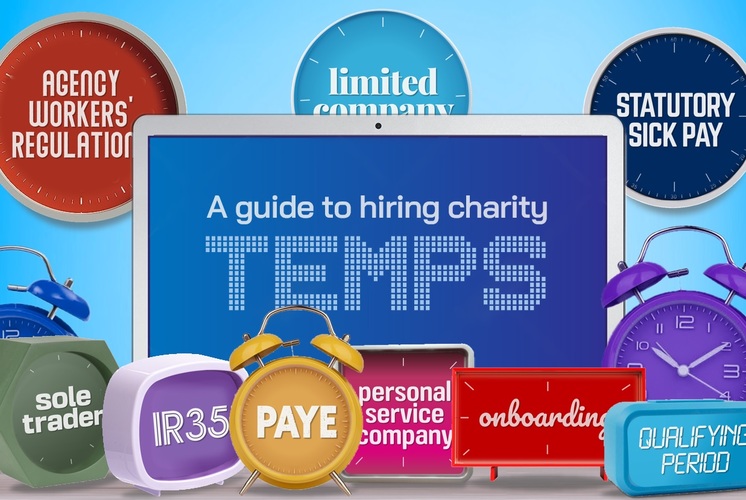Welcome to the world of the lesser-spotted fundraiser, a species so vanishingly rare that at least half the remaining population are being filmed by Sir David Attenborough as we speak. Or so it may have seemed for anyone hoping to recruit them over the past few years. But could fundraiser numbers be increasing? Well, as they’ve yet to inspire our delightful press to wheel out their population-growth favourites like Flooding The Country and Stealing Your Job (While Simultaneously Not Having One), we can probably rule out any major influx. Yet our fundraising recruiters report that filling certain types of vacancies has become just a fraction easier; even if it’s only on a scale you’d need specialist instruments (like our fundraising recruiters) to detect. If so, it’s unlikely to signal an end to the drought, but simply that cannier charities have grown wise to the ways of surviving, like considering more candidates from other sectors, and being swifter to sign up new talent. Many could still benefit from evolving far more quickly in these respects, but our experience suggests that those doing so are starting to reap the rewards.
But, as our politicians love to say before doing the reverse, let us be clear: there’s still a notable shortage of fundraising candidates with the experience charities are generally looking for. Generally, that’s fundraising experience with charities, so you can see the problem. From space, we imagine. As a result, salaries are being nudged gently upwards in all but the smallest organisations, and fundraising is one of the few areas where that even extends to the most junior levels: good news for those with the temerity to want to help others and feed or house themselves at the same time. Turning to specific income streams, we’re still finding experienced major donor specialists the trickiest of all to track down. Roles can often attract plenty of initial interest from commercial candidates with transferable skills, but sadly we find that it’s less often reciprocated, with many organisations opting to hold out for that elusive charity background instead. And while the introduction of GDPR hasn’t had the impact many feared, it has made the role of researching and approaching wealthy donors a little more challenging still, potentially adding to the relatively high sums on offer.
Over in the world of events, we find that those tasked with Special Events (that’s your star-studded gala balls and the like) are generally rewarded a little more handsomely than most, due to the particular skills required. Put simply, it’s one thing to organise Basingstoke’s biggest ever bake-off, but if you can also arrange for Mary Berry and a smattering of Spice Girls to emerge from a giant éclair with the prizes, you’re surely worth an extra £3k of anyone’s money.
Meanwhile with government funding and other revenue sources increasingly depleted, many charities have channelled greater energies into securing funds from grant-giving trusts and foundations. That’s certainly driven a rise in vacancies, almost matched by a rise in candidates at Harris Hill, although CharityJob’s data suggests the area still has limited appeal to new talent. It’s a highly-skilled field where successful bids rely not just on knowing who to approach, but exactly what to ask for, when to do so and how to go about it: all-round expertise which explains why Head of Fundraising roles often call for a trusts background, making it a solid stepping stone to bigger things.
text
Contact your specialist consultantIf you'd like to know more about the market in your particular area of fundraising, discuss recruitment requirements or potential career opportunities, why not talk to our specialist in your field?
Download the full 24-page 2019 Salary Report
| ||||||||||||||||||||||||||||||||||||||||||||||||||||||||||||||||||||||||||||||||||||||||||||||
Policy, Advocacy & Campaigns ►
| ||||||||||||||||||||||||||||||||||||||||||||||||||||||||||||||||||||||||||||||||||||||||||||||








































